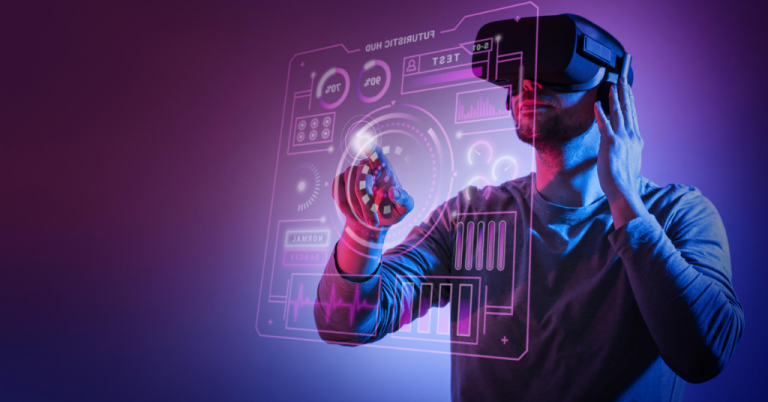Data Science in entertainment is booming, and it has resulted in substantial changes in how media groups operate. Data in entertainment enables businesses to make better judgments about their products, consumers, and marketing strategies. Let’s look at how Data Science is influencing the future of entertainment in three areas: Spotify, OTTs, and movies.
Table of Contents
Data Science in Spotify
Spotify is one of the biggest music streaming services that use data science to improve the user experience. One way it accomplishes this is through customized recommendations. Spotify recommends songs and playlists to users using a variety of strategies such as collaborative filtering and content-based filtering.
Here are a few ways Spotify is leveraging data science for better customer experience.
Personalization
Spotify’s main objective is to provide its consumers with a tailored listening experience. Data Science can help Spotify provide personalized suggestions for each user by evaluating user data such as listening habits, search history, and playlists. This would improve the listening experience and boost user engagement.
Data Science can also help Spotify analyze user-generated playlists and provide insights into the type of music that users prefer. This information can then be used to improve Spotify’s music curation algorithms and generate better recommendations for users.
Content Creation
Data Science can help Spotify determine the type of content that customers want and effectively generate new content. By examining user behavior, Data Science, for example, can discover popular genres, musicians, and songs. Spotify may then invest in generating additional content in these areas in order to attract and retain more members.
By studying user data and finding trends, data science may also assist Spotify in creating new material. This would aid Spotify in the creation of new playlists, the recommendation of new music, and the provision of fresh content to consumers based on their tastes.
Security
Spotify is also susceptible to fraudulent operations such as phony accounts, streams, and plays. Data Science can assist Spotify in detecting and preventing fraudulent behavior. Data Science, for example, can identify patterns of fraudulent conduct and design algorithms to detect and prevent them by studying user data.
This information can be used to prevent the creation of phony accounts and the removal of fake streams from the system. This will help to ensure that artists receive the royalties they are due while also preventing fraudulent practices that could undermine the music business.
User Retention
Spotify can utilize the data science to study user activity and uncover patterns that lead to user attrition. Spotify can prevent users from leaving the platform by spotting patterns of behavior that lead to user churn.
Spotify, for example, can identify the genre of music that customers listen to when they are most likely to churn by analyzing user data. This data can then be utilized to provide customized suggestions that keep users engaged and reduce churn.
In the future, we can expect Spotify to use more advanced techniques like natural language processing to improve its recommendation system. They can also use Data Science to predict the popularity of a song and create a hit forecast.
Data Science in OTTs – Netflix, Amazon Prime TV, Hulu, Disney+
As Over-The-Top (OTT) platforms continue to take over traditional TV viewing, OTTs (Over The Top) are internet-based streaming services that provide video content. Data Science has been used by companies such as Netflix, Amazon Prime, and Disney+ to tailor user experiences and develop blockbuster programming. To understand its users’ tastes and behavior, they collect massive amounts of data about them, including as their viewing history, search queries, and ratings.
One way data science helps OTT platforms is by enabling personalized recommendations. By analyzing user data, such as viewing history and user preferences, the platform can provide relevant content to each individual user. This enhances user experience and increases the likelihood of user retention. Additionally, this creates a sense of loyalty among viewers, as they are more likely to continue using the platform that gives them what they want.
Data science also helps OTT platforms with targeted advertising. By tracking user data, advertisers can deliver more effective ads to viewers who are more likely to engage with the product or service being advertised. This not only increases revenue for the platform but also improves the experience for the viewer. Instead of being bombarded with irrelevant ads, they are shown ads that are more likely to interest them.
Netflix, for example, used Data Science to decide to produce ‘Stranger Things based on data about their users’ viewing habits. They also used Data Science to identify shows that were not performing well and to cancel them.
In the future, we can expect OTTs to use more advanced techniques like sentiment analysis to understand the emotions of their viewers while watching a show.
Data Science in Movies
Data Science is increasingly changing the film industry by empowering filmmakers to make smarter decisions that result in more profitable films.
Studios collect vast amounts of data about their audience, including box office receipts, social media engagement, and search queries, to understand what types of movies people want to see.
The power of data science will have a significant impact on the future of cinema. This is how:
Improved Targeting
Data Science can examine audience preferences, viewing patterns, and behaviors. Filmmakers can design customized marketing campaigns and promotions that will resonate with specific audiences by utilizing machine learning and data analytics. This will allow studios to make better decisions about which films to develop, what themes to investigate, and which actors to cast.
Better Storytelling
Data Science can be utilized to examine a film’s emotional and cultural surroundings. This can assist writers and filmmakers in customizing their storylines to their audience’s expectations. Filmmakers can produce more compelling and dramatic stories that appeal to a wider audience by knowing how specific scenes, characters, and narrative lines affect viewers.
Predictive Modeling
Movie data, such as box office results, audience reviews, and social media trends, can be analyzed using data science. Filmmakers can make data-driven decisions that boost their chances of success by using predictive modeling approaches. This can help lessen the risk associated with film production while also assisting studios in better understanding the market and target viewers.
Budgeting Effectively
Data Science can be used to track the costs of film production from pre-production to post-production. Studios can decrease costs and boost efficiency by studying the production process. This can result in huge savings for studios, allowing them to reinvest in future projects.
Data is good for your business
Industry professionals may use data’s power to make more informed decisions, uncover new revenue streams, and manage their operations for better financial outcomes.
With the development of technology, data science’s potential uses in the entertainment industry are essentially endless. As data science is rapidly incorporated into every aspect of the entertainment industry, we can expect to see even more revolutionary developments in the years to come. In the end, data science is helping the entertainment industry to better understand its customers and create more intriguing, distinctive, and engaging experiences for its audiences.













